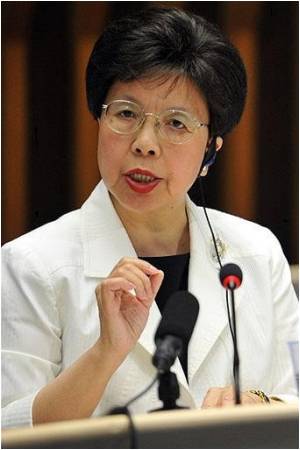World Health Organisation chief Margaret Chan on Thursday decided to maintain a pandemic alert nearly a year after she placed the world on maximum readiness for the new swine flu virus.

"Committee members stressed that it remains critical for countries to continue to maintain vigilance concerning the pandemic," the agency said in a statement.
The announcement followed a teleconference on Tuesday of the committee, comprising 15 scientists headed by Australian infectious diseases expert John Mackenzie.
"Following the advice of the Emergency Committee, the Director-General determined that while the period of most intense pandemic activity has passed, pandemic disease is expected to continue to occur," the WHO said.
It added that the situation will be reassessed by mid July 2010, when full information on the winter influenza season in the south will be available.
Tropical areas of the Caribbean and South Asia are currently the most active areas for the pandemic, with a "relatively low level of resurgence of cases".
Advertisement
In temperate areas of the southern hemisphere, increases in general influenza activity are within common seasonal epidemic levels, while in West Africa the pandemic flu has largely subsided after a peak in February and March, it added.
Advertisement
The new virus spread swiftly worldwide despite emergency containment, prompting the UN health agency to scale up its alerts and declare a pandemic on June 11, 2009.
Fears about the severity of swine flu and a harmful mutation sparked a rush for hundreds of millions of dollars worth of specially-developed vaccines and a flurry of public health precautions.
But those concerns fizzled out in the latter stages of 2009, especially in the northern hemisphere.
Regular seasonal influenza viruses now incorporate protection against A(H1N1) swine flu and the WHO insists on the merits of flu jabs.
"Pandemic or no pandemic, H1N1 will still exist. If there is no pandemic it means that H1N1 is behaving like a seasonal influenza virus but it is still there," spokesman Gregory Haertl said.
"Therefore vaccination against H1N1 is still important," he added, especially for pregnant women, the young and those weakened by other ailments.
The WHO has responded to criticism of the international alert by setting up an independent committee of experts this year to review the handling of the swine flu pandemic.
The review panel is due to report its findings by the beginning of next year.
Source-AFP










